China Power: Chinese retirees reshape Southeast Asia’s retirement landscape, and perceptions of the superpower too
CHIANG MAI: Before she decided to retire in Thailand, Chinese national Xu Weihong, 57, spent a year living and travelling in China’s southwestern Yunnan province and ran a successful traditional Chinese medicine business in Shanghai.
These days, she is learning Thai and enjoying life in Chiang Mai with her husband and elderly parents, both in their 80s.
Home is a spacious two-storey house in Chiang Mai’s scenic Hang Dong district, a favourite among expats and increasingly, hundreds of Chinese retirees.
“We were impressed by the internationalisation here as well as the relaxed, laid‐back vibe,” Xu told CNA, adding that northern Thailand’s milder weather was also a draw.
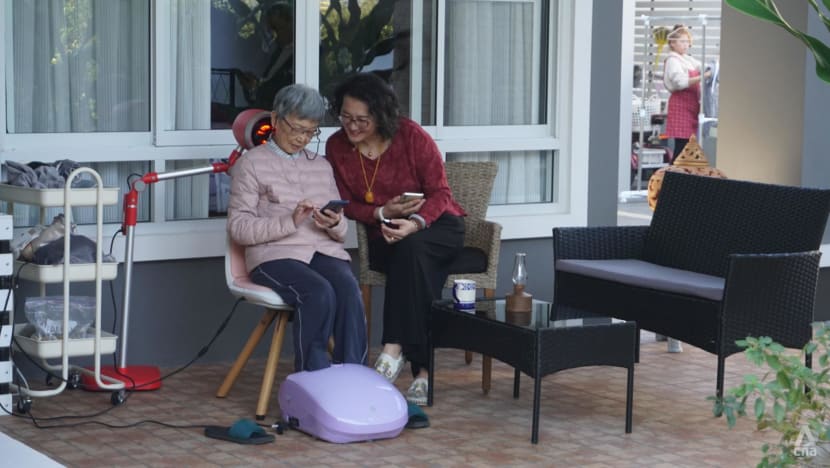
Chinese retirees are also settling down in other parts of the region like the Philippines, where flights to and from mainland Chinese cities are cheap, regular and just a few hours.
Nelson Chua, a Fujian native in his 60s, runs a thriving business in Davao City - handling imports of trucks from China and exporting local tropical fruits like bananas and pineapples to several Chinese cities.
After more than 40 years in the business, he is finally ready to retire and put down roots in Davao. “Of course I’d retire in the Philippines. All my family is here,” Chua told CNA, referring to his wife and two children.
“We love Davao because it isn’t like Manila or big cities in China, which are crowded and polluted. Here we are close to nature, the mountains and beaches.”
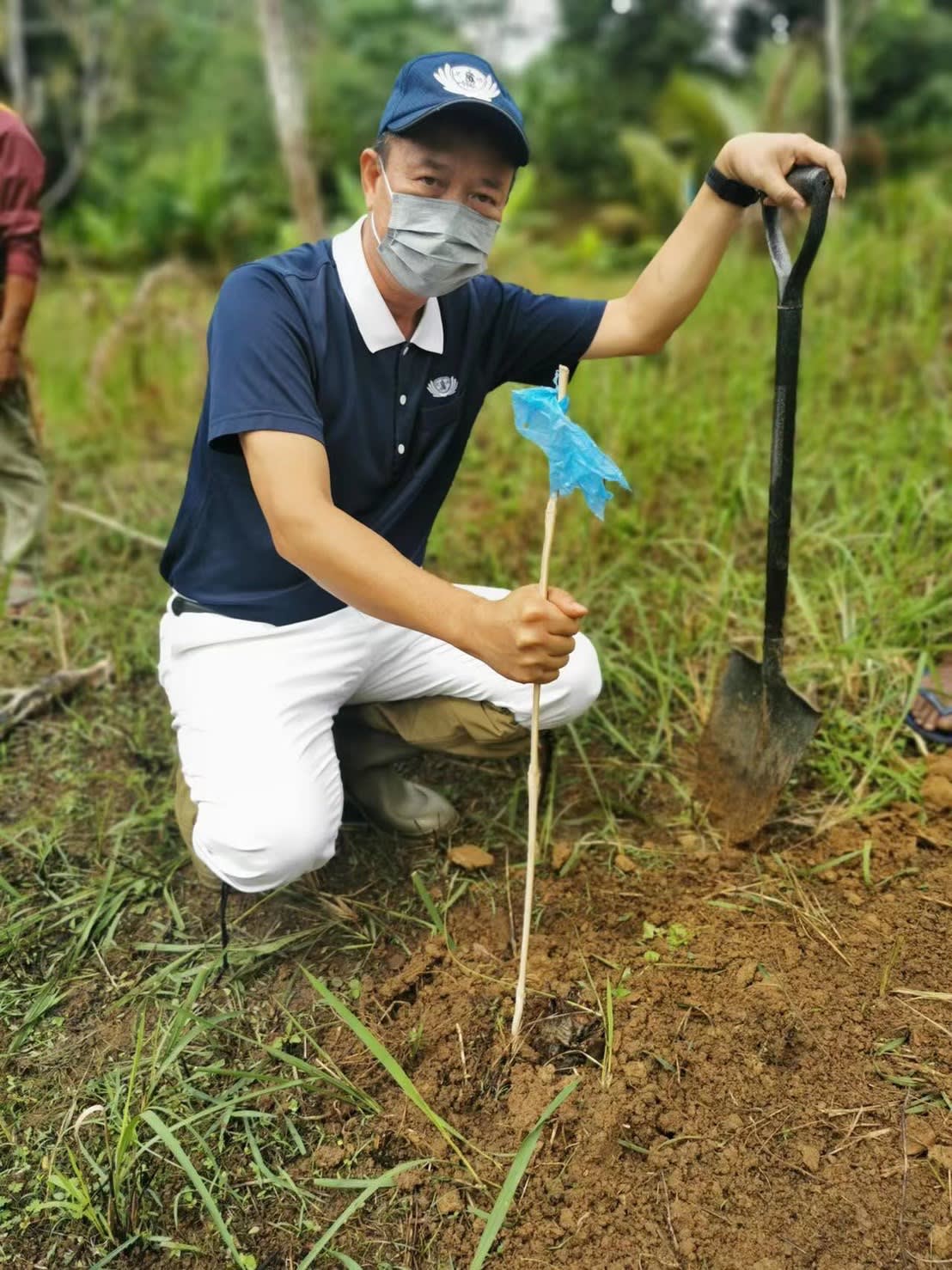
In rapidly ageing China, a growing movement has been taking shape.
Chinese retirees, who have been traditionally known to move in with their children or live out their remaining years in nursing homes and elder care facilities, are now looking abroad and settling down in nearby Southeast Asian countries.
Better weather, lower costs and the region’s close proximity to mainland Chinese cities have been big draws for Chinese seniors, industry players said.
They added that flexible long-stay visas and insurance schemes also go a long way in attracting Chinese seniors, who are becoming increasingly known for their growing spending power.
While the growing Chinese retiree diaspora has brought much-needed business to local vendors and driven demand for senior-friendly services, eldercare, property, and tourism, their presence has also been stirring debate.
Locals across the the region have voiced concerns over rising prices, overstretched healthcare systems and the need for tighter visa controls - sentiments likely to shape how China is viewed in the region as the number of Chinese retirees continues to rise.
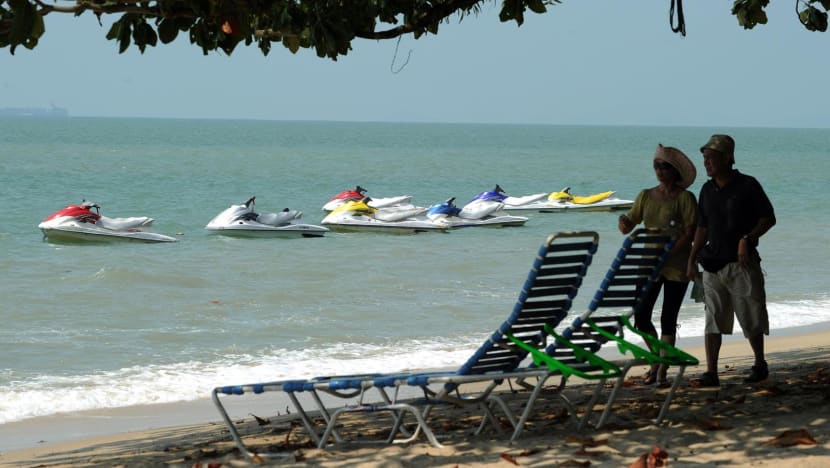
Perceptions of China remain divided in the region, according to the latest annual survey published by the ISEAS-Yusof Ishak Institute on Apr 3, which named China as Southeast Asia’s most influential economic and political power.
However, more than 60 per cent of Southeast Asian respondents who chose China as the most influential economic power said they were worried about its growing economic influence.
"ASEAN-10 countries are divided in their trust toward China," ISEAS said, adding that distrust exceeded trust levels in six countries, which included respondents from Vietnam, Indonesia and the Philippines."These evolving perceptions reflect a mix of optimism about China’s economic prospects and pessimism surrounding geopolitical tensions which are important factors that will continue to shape ASEAN’s long-term perceptions of China."
RETIRING IN SOUTHEAST ASIA
Across the region, just five countries offer foreign retirement visa schemes - Thailand, Malaysia, the Philippines, Indonesia and Cambodia.
The Philippines offers two main types of residency visas for foreign nationals - one of which is the Special Resident Retiree's Visa (SRRV), a non-immigrant visa that allows foreigners to live, work and invest in the country and also offers perks like tax exemptions, multiple-entry privileges and indefinite stay.
“These visas grant beneficiaries various privileges,” said Samantha Laureola, Head of Research at the Global Commercial Real Estate Services group (CBRE Philippines), who noted that 78,000 SRRVs had been issued since mid-2024, with nearly 40 per cent, around 30,000 - granted to Chinese nationals.
Chua said the Philippines “is great for retirement” because of lower living costs.
“Davao is significantly cheaper to live in than China or other cities in Asia like Singapore,” he added. “You can stretch your yuan - buy more for less and enjoy a more comfortable retirement.”
“When I get older and need a nanny or a nurse, it would be more affordable to hire one here compared to other countries.”
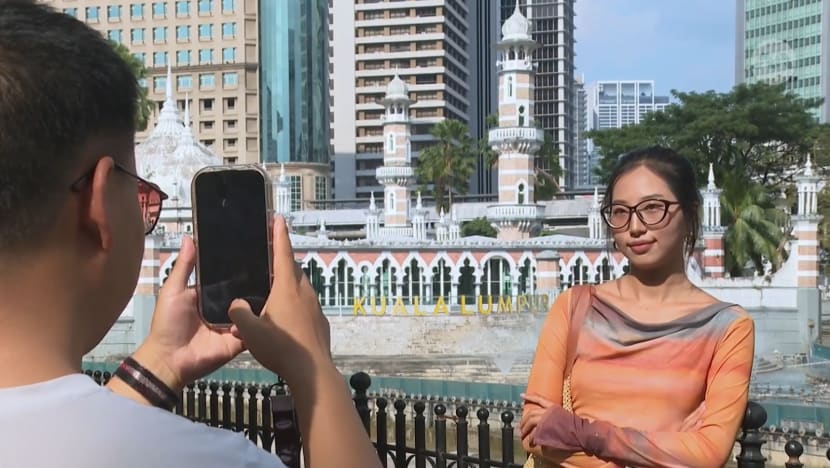
Chinese nationals also make up the largest group of foreign retirees in Malaysia under its current retirement residency visa scheme, according to official figures released by Malaysia’s Tourism Minister Tiong King Sing in March.
Out of the 22,282 approved applications since 2015, nearly half were granted to Chinese retirees, according to Tiong.
“Malaysia offers a rare blend of low-cost living, excellent medical care and vibrant culture that retirees find both accessible and enriching,” said a 2025 survey published in Irish magazine International Living, which ranked Malaysia seventh on its annual list of top retirement destinations.
FLYING SOUTH FOR THE WINTER
Chinese silver tourism has been on the rise and some retirees have adopted a “migratory bird” lifestyle, heading south to warmer destinations to escape China’s harsh winters.
According to Trip.com data released in January, bookings by travellers aged 50 and above increased by 34 per cent year-on-year by the end of 2024.
Seniors also accounted for nearly 20 per cent of all outbound tourists, cementing their status as a key segment of the travel market, the report said.
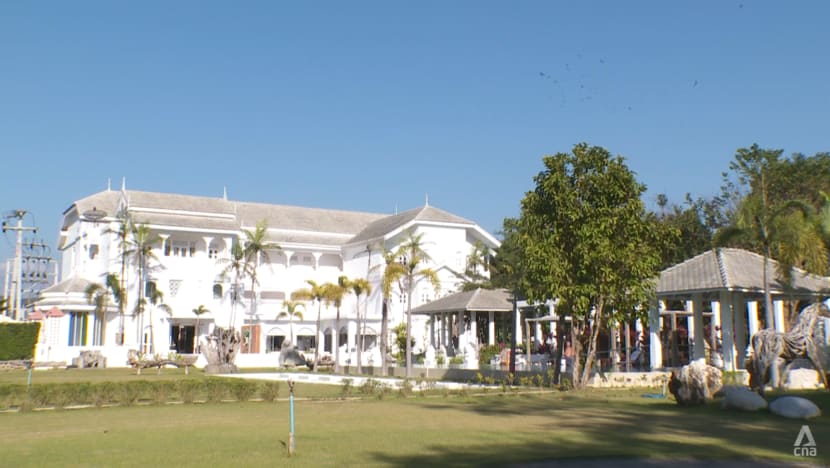
Tucked away between hillsides and valleys, is the Lanna Inthan Hotel Resort Spa in Chiang Mai’s Doi Saket district, which has become a popular retreat for seasonal Chinese senior travellers.
Located just a 20-minute drive away from some of Chiang Mai’s best hospitals, the facility caters specially to senior travellers by offering curated daily activities, shuttle services and even long-term assisted living stays.
When CNA visited the resort in January, groups of Chinese retirees were seen enjoying the resort’s facilities like golf courses and swimming pools.
“It’s so relaxing. I can fully immerse myself in nature,” said Cai Qing, a 58-year-old semi-retiree from Suzhou city, who was there with friends on holiday. “We wake up late in the morning, eat, swim, play a bit of golf and just relax without any stress.”
Another retiree, Qinzi, 64, has visited Chiang Mai several times and often recommends Lanna Inthan to her friends. “Running around all day would be too tiring,” she told CNA. This type of (laid back) travel is very suitable for seniors.”
“That’s why I visit every one or two months since I retired, or at least during the Chinese winter months.”
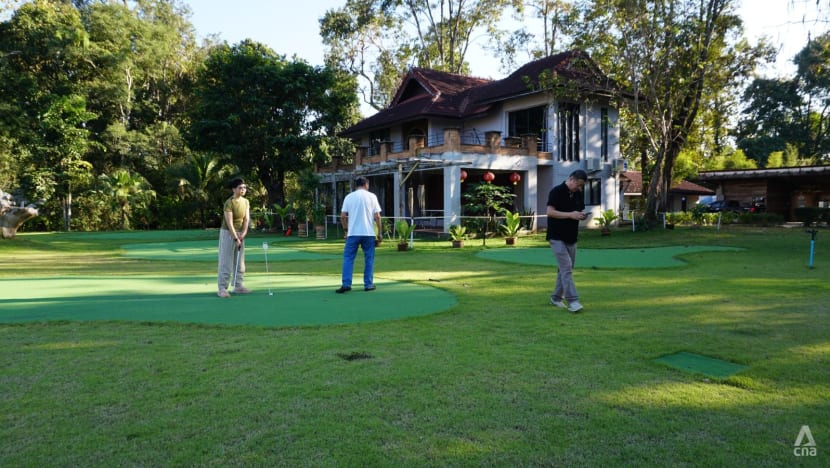
The resort’s general manager Jimmy Qu, a Chinese Canadian managing the property for his 73-year-old father, told CNA that the estate was owned by four stakeholders, two of whom are Chinese and hold minority shares.
Business reflects a growing demand for Chinese retirees, Qu said. "Chiang Mai boasts many healthcare services for elderly requiring nursing care, yet a dedicated health and wellness hotel remains rare."
PERCEPTIONS OF CHINA
With its significant Malaysian Chinese population, Penang is home to a sizable number of Chinese retirees who enjoy the island's affordable property prices and diverse food scene.
Many like Grace Ng, a retired financial planner from Hong Kong, said they feel at home among the local Chinese-speaking communities.
She has recently invested in property along Batu Ferringhi Beach, valued at around HK$2.2 million (US$283,050).
“We love the tropical climate and there are many Chinese here,” Ng told CNA, adding that Penang’s high healthcare standards and rich cultural scene have also made the transition smoother for her.
Malaysian property agents have also welcomed the new Chinese arrivals.
“Collaborating with them is a win-win situation for us,” said Shawn Hong, a property negotiator in Penang who has worked with several Chinese brokers and buyers.
“We know Penang and the local market well so we help and assist them and show their clients properties that match their requirements to get successful deals.”
Thailand, regularly ranked as a top travel destination among Chinese travellers, has been seeing more retirees from China.
Businesses and vendors in Chiang Mai told CNA that the rise in Chinese nationals has brought good business.
Ampun Tadee, who runs a furniture shop in the Hang Dong district, said business has surged by 30 per cent in just two years.
Several Chinese nationals have ordered customised built-in home cabinets, costing over around 10,000 baht (US$300). “Many new cafes and restaurants are (also) opening,” she said.
Other locals, like 16-year-old Nattawadee Saewang, who lives in a village near Hang Dong, also welcomed the arrival of Chinese nationals.
“They bring diversity and buy things to support the local economy,” she said, adding that she has not seen any disruption to daily life.
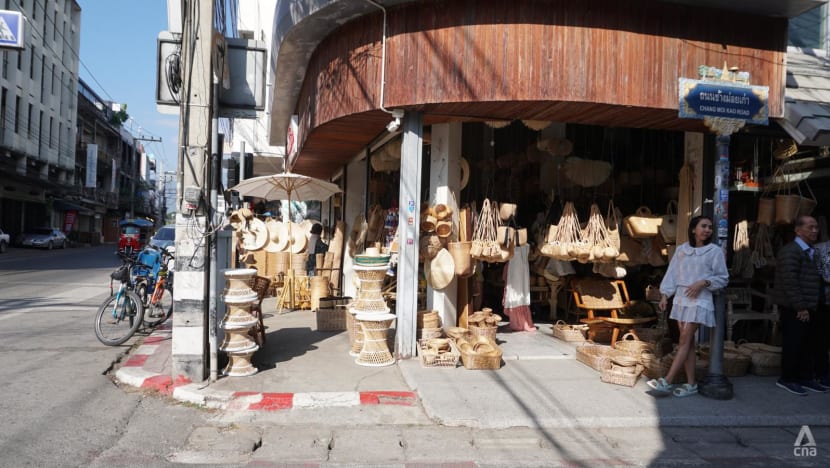
To cater to the growing number of Chinese clients, Best Pakapond, a local visa agent in Thailand, pivoted from making tourism promotional videos on Chinese social media apps to running the Som Visa Agency, which she set up in 2022.
She handles up to 300 Chinese clients a month, many retirees seeking long-term retirement visas.
Chinese retirees make up nearly a third of her clients, she said.
“Slowly, there are more Chinese enquiring every day. I feel it’s increasingly important to focus on this audience.”
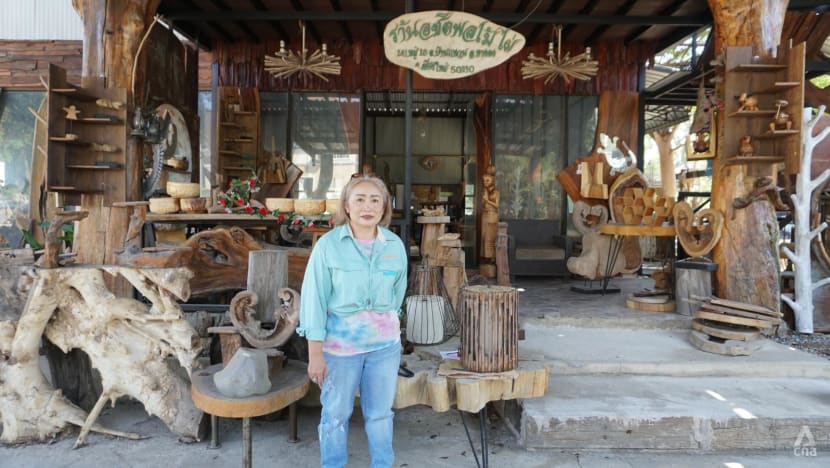
Over the past decade, Chinese buyers have flocked to Chiang Mai and snapped up property of up to five billion baht, according to the Chiang Mai Real Estate Association.
Districts like Hang Dong, San Kamphaeng and San Sai have been seeing soaring land prices driven by the recent arrival of Chinese buyers.
In San Sai district, home to both locals and expats, a new luxury villa housing project is already attracting the attention of China’s elite.
The upcoming Miyuan Lakeview Villa cove, which aims to bring a modern Chinese style with traditional touches, is tailored for a specific clientele, developers say - “high net-worth individuals from China”.
“A few homes have already been purchased,” said one of the developers Luo Jianyu.
Among the buyers are Chinese tech executives and actor-singer Huang Xiaoming, who recently purchased a swanky new villa for his parents.
“The first phase will feature around 100 homes,” Luo said.
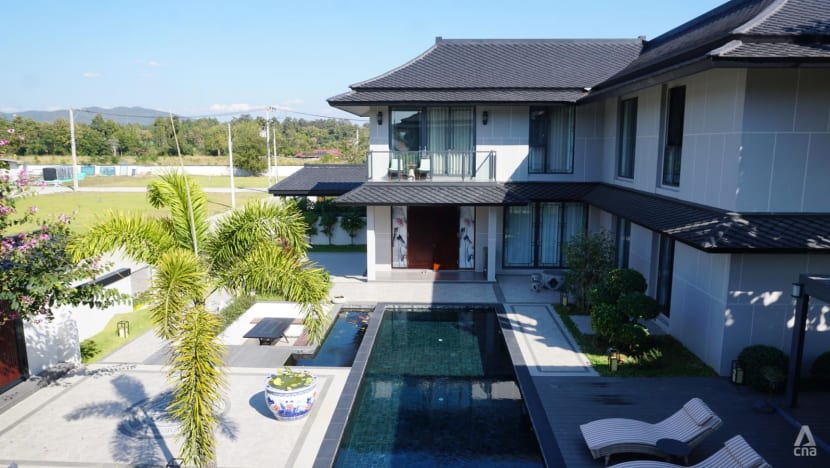
“It’s obvious (that) Chinese nationals have brought significant economic benefits to Thailand,” said Dr Danaitun Pongpatcharatorntep, Deputy Dean and Head of the China Intelligence Center at Chiang Mai University.
“We have a very low cost of living. Many Chinese talk about Thailand in terms of (being) value for money.”
For veteran property agent Sanun Thakamsang, his initial reaction to Chinese nationals was sceptical.
“I felt they were here to take advantage of a poorer country,” he said. “But now it’s more justified. Some Chinese are also good.”
“They still need us to connect them with local landlords,” he added. “There’s now an (established) network - Chinese brokers bring in clients and we act as the link.”
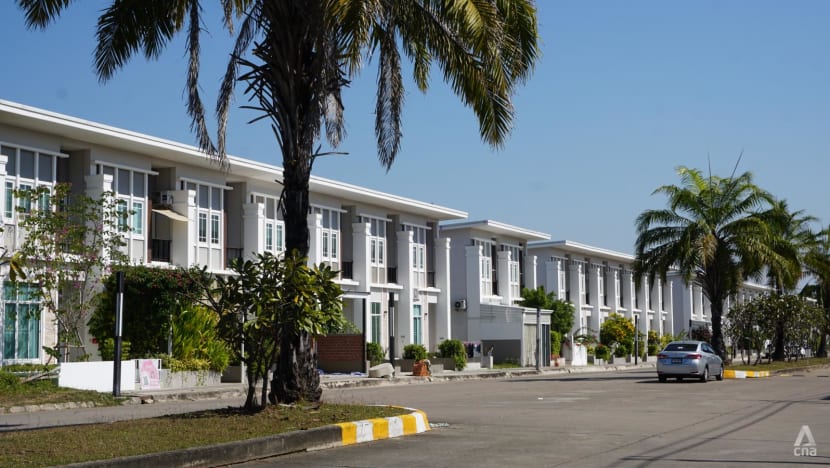
Indonesia, Southeast Asia’s largest economy, has also been seeing growing numbers of Chinese retirees eyeing prime real estate in popular cities like Bali and Jakarta, local property agents told CNA.
But foreign ownership rules remain tight, said Nicky Rahardjo, a property agent in Surabaya.
Like all foreign buyers, Chinese retirees are only entitled to buy certain property types like apartments and must meet minimum price thresholds.
“While some Chinese buyers may get their information through Chinese agents, they ultimately need to work with Indonesian professionals to ensure smooth transactions and property management,” he said.
“(They) need us to help them understand the market, handle legal procedures and manage their properties - that gives us a strong competitive edge.”
TENSIONS AND TRADE-OFFS
But a 2023 survey by Thai think tank The Glocal found that 60 per cent of Thai respondents believe Chinese investment has significantly affected local businesses - with real estate topping their list of concerns, along with tourism and retail.
Seventeen out of 30 respondents also said they supported tighter regulations on Chinese capital.
Issues over Chinese retiree visas became a major concern in the Philippines after four Chinese mafia members were caught in 2024 using special retiree visas to remain in the country.
The incident raised alarm and resulted in “more rigorous screening procedures”, which found that around 30,000 Chinese nationals received retiree visas without meeting the official 50-year age requirement - and had been found to be aged between 35 and 50.
“The growing number of interceptions of Chinese nationals presenting authentic government-issued Philippine documents identifying them as Filipino traders or retirees has now become a national security concern,” said Philippine senator Nancy Binay.
“It’s really alarming since these foreign nationals enter and exit the country using valid documents we know were obtained through illicit ways.”
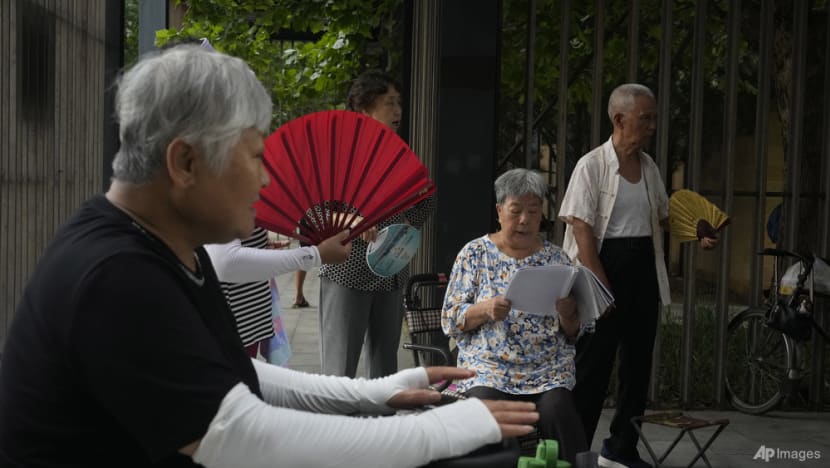
Even with the allure of spacious and affordable properties, Chinese retirees also face challenges in other areas, experts said.
In Thailand, there have been rising concerns among officials about the lack of manpower and appropriate facilities to cater to incoming numbers of Chinese seniors.
“This is because retirees are a demographic that Thailand currently lacks the manpower to adequately care for,” said Dr Danaitun Pongpatcharatorntep, Deputy Dean and Head of the China Intelligence Center (CIC) at Chiang Mai University’s College of Arts, Media and Technology, who also notes there are “no clear policies in place to train professionals to support this group”.
“Caring for this group requires a substantial amount of medical resources,” Dr Pongpatcharatorntep said.
“If Thailand does not first ensure there are enough personnel in place before welcoming more retirees (from China), it could strain the country’s public healthcare services.”
Additional reporting by Amir Yusof
免責聲明:投資有風險,本文並非投資建議,以上內容不應被視為任何金融產品的購買或出售要約、建議或邀請,作者或其他用戶的任何相關討論、評論或帖子也不應被視為此類內容。本文僅供一般參考,不考慮您的個人投資目標、財務狀況或需求。TTM對信息的準確性和完整性不承擔任何責任或保證,投資者應自行研究並在投資前尋求專業建議。
熱議股票
- 1
- 2
- 3
- 4
- 5
- 6
- 7
- 8
- 9
- 10